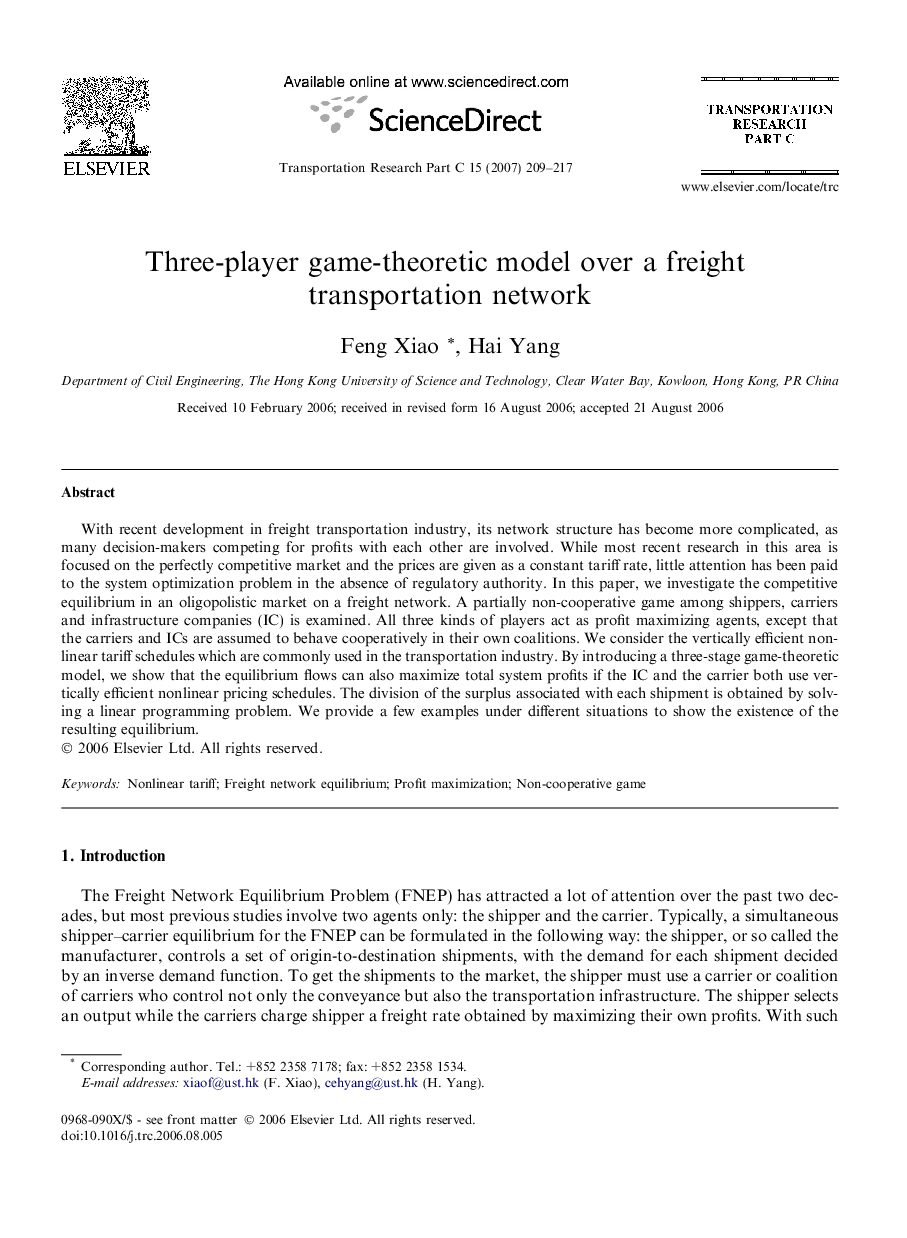| Article ID | Journal | Published Year | Pages | File Type |
|---|---|---|---|---|
| 525473 | Transportation Research Part C: Emerging Technologies | 2007 | 9 Pages |
With recent development in freight transportation industry, its network structure has become more complicated, as many decision-makers competing for profits with each other are involved. While most recent research in this area is focused on the perfectly competitive market and the prices are given as a constant tariff rate, little attention has been paid to the system optimization problem in the absence of regulatory authority. In this paper, we investigate the competitive equilibrium in an oligopolistic market on a freight network. A partially non-cooperative game among shippers, carriers and infrastructure companies (IC) is examined. All three kinds of players act as profit maximizing agents, except that the carriers and ICs are assumed to behave cooperatively in their own coalitions. We consider the vertically efficient nonlinear tariff schedules which are commonly used in the transportation industry. By introducing a three-stage game-theoretic model, we show that the equilibrium flows can also maximize total system profits if the IC and the carrier both use vertically efficient nonlinear pricing schedules. The division of the surplus associated with each shipment is obtained by solving a linear programming problem. We provide a few examples under different situations to show the existence of the resulting equilibrium.
